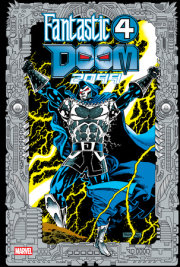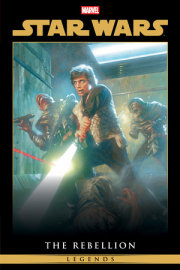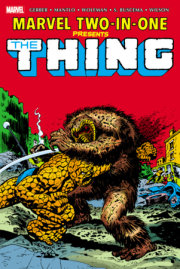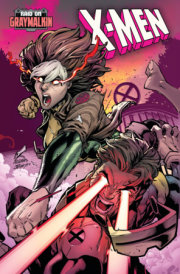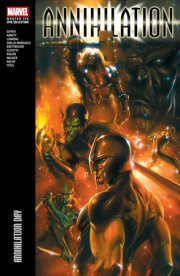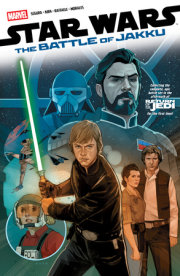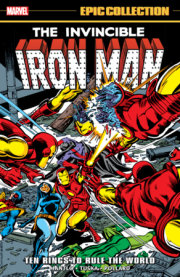

Are you still there?
If not, we’ll close this session in:
CAPTAIN AMERICA OMNIBUS VOL. 2 CARLOS PACHECO COVER [NEW PRINTING]
Author Stan Lee, Gary Friedrich
Illustrated by Gene Colan, Marvel Various
Cover Design or Artwork by Carlos Pacheco
Hardcover
$100.00 US
7.65"W
x
11.12"H
x
1.68"D
|
79 oz
|
5 per carton
On sale Oct 01, 2024
|
824 Pages
|
9781302958398
While the world believes that Steve Rogers is dead, Captain America lives on! In this Omnibus collection of Marvel classics by Stan Lee, Gene Colan and John Romita Sr., Cap embarks upon some of his all-time greatest adventures! A body-swapping encounter with the Red Skull and his Cosmic Cube leads to the first appearance of the Falcon; M.O.D.O.K. returns with a vengeance - and a secret weapon; Cap sets out on a road trip to explore his and his country's souls; Bucky Barnes returns; Nick Fury and S.H.I.E.L.D. enlist Cap in their battle against Hydra; Spider-Man and the Hulk face off against the star-spangled Avenger; and so much more! Every amazing story, every classic cover, every letters page is painstakingly restored and presented in this must-have oversized extravaganza! Collecting CAPTAIN AMERICA (1968) #114-148.
Writer/editor Stan Lee (1922-2018) made comic-book history together with Jack Kirby in 1961 with Fantastic Four #1. The monumental popularity of its new style inspired Lee to develop similarly themed characters — including the Hulk and X-Men with Kirby, Spider-Man and Doctor Strange with Steve Ditko, and Daredevil with Bill Everett. After shepherding his creations through dozens of issues — in some cases a hundred or more — Lee allowed other writers to take over, but he maintained steady editorial control. Eventually, he helped expand Marvel into a multimedia empire. In recent years, his frequent cameo appearances in Marvel’s films established Lee as one of the world’s most famous faces.
The unique, shadowy style of Gene Colan (1926-2011) most memorably appeared in long stints on Captain America and Daredevil, and all 70 issues of Tomb of Dracula — among the dozens of other Marvel titles he has drawn. His DC work on Detective Comics and Night Force is equally well remembered. During the Golden Age, he drew multiple war stories for Marvel and DC alike. Colan has earned several Eagle Awards and had professional art showings in New York City. His work on Ed Brubaker’s Captain America at the age of 82 drew well-deserved raves.
John Romita was born in 1930 and drew for Atlas Era Marvel Comics across many genres. By the time Stan Lee, Jack Kirby and Steve Ditko were defining the look and feel of the Marvel Age of Comics during the 1960s, Romita had made the move to DC Comics, where he was working exclusively behind the boards of the company’s many romance comics. It wasn’t until 1966 that he returned to Marvel Comics and the super-hero genre, drawing Daredevil before taking over from Ditko on what was fast becoming Marvel’s most important book, Amazing Spider-Man. Romita’s slick, clean craftsmanship would be a hallmark of his tenure, and his years of drawing beautiful women in DC’s romance books paid off with iconic renderings of Gwen Stacy, Mary Jane Watson and the other women in Peter Parker’s life.
John Buscema (1927-2002) literally wrote the book on being a Marvel artist — namely, How To Draw Comics the Marvel Way — and few were better qualified. His career dated back to the Timely/Atlas era of the late ’40s and early ’50s. Soon after beginning the Marvel Age of Comics, Stan Lee recruited Buscema from the advertising field to the Marvel Bullpen. Buscema followed a long run on Avengers with the long-anticipated first Silver Surfer series. He subsequently succeeded Jack Kirby on Fantastic Four, Thor and other titles. By the time of his retirement in 1996, Buscema had penciled nearly every Marvel title — including his personal favorite, Conan the Barbarian.
The unique, shadowy style of Gene Colan (1926-2011) most memorably appeared in long stints on Captain America and Daredevil, and all 70 issues of Tomb of Dracula — among the dozens of other Marvel titles he has drawn. His DC work on Detective Comics and Night Force is equally well remembered. During the Golden Age, he drew multiple war stories for Marvel and DC alike. Colan has earned several Eagle Awards and had professional art showings in New York City. His work on Ed Brubaker’s Captain America at the age of 82 drew well-deserved raves.
John Romita was born in 1930 and drew for Atlas Era Marvel Comics across many genres. By the time Stan Lee, Jack Kirby and Steve Ditko were defining the look and feel of the Marvel Age of Comics during the 1960s, Romita had made the move to DC Comics, where he was working exclusively behind the boards of the company’s many romance comics. It wasn’t until 1966 that he returned to Marvel Comics and the super-hero genre, drawing Daredevil before taking over from Ditko on what was fast becoming Marvel’s most important book, Amazing Spider-Man. Romita’s slick, clean craftsmanship would be a hallmark of his tenure, and his years of drawing beautiful women in DC’s romance books paid off with iconic renderings of Gwen Stacy, Mary Jane Watson and the other women in Peter Parker’s life.
John Buscema (1927-2002) literally wrote the book on being a Marvel artist — namely, How To Draw Comics the Marvel Way — and few were better qualified. His career dated back to the Timely/Atlas era of the late ’40s and early ’50s. Soon after beginning the Marvel Age of Comics, Stan Lee recruited Buscema from the advertising field to the Marvel Bullpen. Buscema followed a long run on Avengers with the long-anticipated first Silver Surfer series. He subsequently succeeded Jack Kirby on Fantastic Four, Thor and other titles. By the time of his retirement in 1996, Buscema had penciled nearly every Marvel title — including his personal favorite, Conan the Barbarian.
Stan Lee
View titles by Stan Lee
Gary Friedrich
View titles by Gary Friedrich
Gene Colan
View titles by Gene Colan
Marvel Various
View titles by Marvel Various
About
While the world believes that Steve Rogers is dead, Captain America lives on! In this Omnibus collection of Marvel classics by Stan Lee, Gene Colan and John Romita Sr., Cap embarks upon some of his all-time greatest adventures! A body-swapping encounter with the Red Skull and his Cosmic Cube leads to the first appearance of the Falcon; M.O.D.O.K. returns with a vengeance - and a secret weapon; Cap sets out on a road trip to explore his and his country's souls; Bucky Barnes returns; Nick Fury and S.H.I.E.L.D. enlist Cap in their battle against Hydra; Spider-Man and the Hulk face off against the star-spangled Avenger; and so much more! Every amazing story, every classic cover, every letters page is painstakingly restored and presented in this must-have oversized extravaganza! Collecting CAPTAIN AMERICA (1968) #114-148.
Author
Writer/editor Stan Lee (1922-2018) made comic-book history together with Jack Kirby in 1961 with Fantastic Four #1. The monumental popularity of its new style inspired Lee to develop similarly themed characters — including the Hulk and X-Men with Kirby, Spider-Man and Doctor Strange with Steve Ditko, and Daredevil with Bill Everett. After shepherding his creations through dozens of issues — in some cases a hundred or more — Lee allowed other writers to take over, but he maintained steady editorial control. Eventually, he helped expand Marvel into a multimedia empire. In recent years, his frequent cameo appearances in Marvel’s films established Lee as one of the world’s most famous faces.
The unique, shadowy style of Gene Colan (1926-2011) most memorably appeared in long stints on Captain America and Daredevil, and all 70 issues of Tomb of Dracula — among the dozens of other Marvel titles he has drawn. His DC work on Detective Comics and Night Force is equally well remembered. During the Golden Age, he drew multiple war stories for Marvel and DC alike. Colan has earned several Eagle Awards and had professional art showings in New York City. His work on Ed Brubaker’s Captain America at the age of 82 drew well-deserved raves.
John Romita was born in 1930 and drew for Atlas Era Marvel Comics across many genres. By the time Stan Lee, Jack Kirby and Steve Ditko were defining the look and feel of the Marvel Age of Comics during the 1960s, Romita had made the move to DC Comics, where he was working exclusively behind the boards of the company’s many romance comics. It wasn’t until 1966 that he returned to Marvel Comics and the super-hero genre, drawing Daredevil before taking over from Ditko on what was fast becoming Marvel’s most important book, Amazing Spider-Man. Romita’s slick, clean craftsmanship would be a hallmark of his tenure, and his years of drawing beautiful women in DC’s romance books paid off with iconic renderings of Gwen Stacy, Mary Jane Watson and the other women in Peter Parker’s life.
John Buscema (1927-2002) literally wrote the book on being a Marvel artist — namely, How To Draw Comics the Marvel Way — and few were better qualified. His career dated back to the Timely/Atlas era of the late ’40s and early ’50s. Soon after beginning the Marvel Age of Comics, Stan Lee recruited Buscema from the advertising field to the Marvel Bullpen. Buscema followed a long run on Avengers with the long-anticipated first Silver Surfer series. He subsequently succeeded Jack Kirby on Fantastic Four, Thor and other titles. By the time of his retirement in 1996, Buscema had penciled nearly every Marvel title — including his personal favorite, Conan the Barbarian.
The unique, shadowy style of Gene Colan (1926-2011) most memorably appeared in long stints on Captain America and Daredevil, and all 70 issues of Tomb of Dracula — among the dozens of other Marvel titles he has drawn. His DC work on Detective Comics and Night Force is equally well remembered. During the Golden Age, he drew multiple war stories for Marvel and DC alike. Colan has earned several Eagle Awards and had professional art showings in New York City. His work on Ed Brubaker’s Captain America at the age of 82 drew well-deserved raves.
John Romita was born in 1930 and drew for Atlas Era Marvel Comics across many genres. By the time Stan Lee, Jack Kirby and Steve Ditko were defining the look and feel of the Marvel Age of Comics during the 1960s, Romita had made the move to DC Comics, where he was working exclusively behind the boards of the company’s many romance comics. It wasn’t until 1966 that he returned to Marvel Comics and the super-hero genre, drawing Daredevil before taking over from Ditko on what was fast becoming Marvel’s most important book, Amazing Spider-Man. Romita’s slick, clean craftsmanship would be a hallmark of his tenure, and his years of drawing beautiful women in DC’s romance books paid off with iconic renderings of Gwen Stacy, Mary Jane Watson and the other women in Peter Parker’s life.
John Buscema (1927-2002) literally wrote the book on being a Marvel artist — namely, How To Draw Comics the Marvel Way — and few were better qualified. His career dated back to the Timely/Atlas era of the late ’40s and early ’50s. Soon after beginning the Marvel Age of Comics, Stan Lee recruited Buscema from the advertising field to the Marvel Bullpen. Buscema followed a long run on Avengers with the long-anticipated first Silver Surfer series. He subsequently succeeded Jack Kirby on Fantastic Four, Thor and other titles. By the time of his retirement in 1996, Buscema had penciled nearly every Marvel title — including his personal favorite, Conan the Barbarian.
Stan Lee
View titles by Stan Lee
Gary Friedrich
View titles by Gary Friedrich
Gene Colan
View titles by Gene Colan
Marvel Various
View titles by Marvel Various
Other Books by this Author
-
9781302965525$125.00 USHardcoverMarvel UniverseDec 09, 2025
-
9781302966997$100.00 USHardcoverMarvel UniverseDec 09, 2025
-
9781302961305$75.00 USHardcoverLicensed PublishingDec 02, 2025
-
9781302962630$75.00 USHardcoverMarvel UniverseNov 25, 2025
-
9781302965877$125.00 USHardcoverMarvel UniverseNov 25, 2025
-
9781302966454$125.00 USHardcoverMarvel UniverseNov 25, 2025
-
9781302962616$75.00 USHardcoverMarvel UniverseNov 18, 2025
-
9781302965464$100.00 USHardcoverMarvel UniverseNov 18, 2025
-
9781302962593$125.00 USHardcoverMarvel UniverseNov 11, 2025
-
9781302966423$125.00 USHardcoverMarvel UniverseNov 11, 2025
-
9781302965853$125.00 USHardcoverMarvel UniverseNov 04, 2025
-
9781302961435$150.00 USHardcoverMarvel UniverseOct 28, 2025
-
9781302965211$54.99 USPaperbackMarvel UniverseOct 28, 2025
-
9781302966409$100.00 USHardcoverMarvel UniverseOct 28, 2025
-
9781302962555$75.00 USHardcoverMarvel UniverseOct 21, 2025
-
9781302965204$49.99 USPaperbackMarvel UniverseOct 21, 2025
-
9781302965969$125.00 USHardcoverLicensed PublishingOct 21, 2025
-
9781302966386$75.00 USHardcoverMarvel UniverseOct 21, 2025
-
9781302966164$150.00 USHardcoverMarvel UniverseOct 14, 2025
-
9781302962531$125.00 USHardcoverMarvel UniverseOct 07, 2025
-
9781302963262$49.99 USPaperbackMarvel UniverseOct 07, 2025
-
9781302965440$150.00 USHardcoverMarvel UniverseSep 30, 2025
-
9781302965846$54.99 USPaperbackMarvel UniverseSep 30, 2025
-
9781302962517$75.00 USHardcoverMarvel UniverseSep 23, 2025
-
9781302964757$100.00 USHardcoverMarvel UniverseSep 23, 2025
-
9781302965037$100.00 USHardcoverMarvel UniverseSep 23, 2025
-
9781302962494$100.00 USHardcoverMarvel UniverseSep 16, 2025
-
9781302965501$150.00 USHardcoverMarvel UniverseSep 16, 2025
-
9781302966362$150.00 USHardcoverMarvel UniverseSep 16, 2025
-
9781302960605$49.99 USPaperbackLicensed PublishingSep 09, 2025
-
9781302962470$125.00 USHardcoverMarvel UniverseSep 09, 2025
-
9781302965280$54.99 USPaperbackMarvel UniverseSep 09, 2025
-
9781302965365$150.00 USHardcoverMarvel UniverseSep 09, 2025
-
9781302960537$54.99 USPaperbackMarvel UniverseSep 02, 2025
-
9781302961817$24.99 USPaperbackMarvel UniverseSep 02, 2025
-
9781302965600$49.99 USPaperbackMarvel UniverseSep 02, 2025
-
9781302962456$75.00 USHardcoverMarvel UniverseAug 26, 2025
-
9781302965242$125.00 USHardcoverMarvel UniverseAug 26, 2025
-
9781302959333$15.99 USPaperbackMarvel UniverseAug 19, 2025
-
9781302959357$15.99 USPaperbackMarvel UniverseAug 19, 2025
-
9781302961824$100.00 USHardcoverMarvel UniverseAug 19, 2025
-
9781302965617$49.99 USPaperbackMarvel UniverseAug 19, 2025
-
9781302966324$100.00 USHardcoverMarvel UniverseAug 19, 2025
-
9781302961909$49.99 USPaperbackMarvel UniverseAug 12, 2025
-
9781302962432$125.00 USHardcoverMarvel UniverseAug 12, 2025
-
9781302966348$125.00 USHardcoverMarvel UniverseAug 12, 2025
-
9781302960568$54.99 USPaperbackMarvel UniverseAug 05, 2025
-
9781302966249$34.99 USPaperbackMarvel UniverseAug 05, 2025
-
9781302957186$17.99 USPaperbackMarvel UniverseJul 29, 2025
-
9781302962876$34.99 USPaperbackMarvel UniverseJul 29, 2025
-
9781302963705$100.00 USHardcoverMarvel UniverseJul 29, 2025
-
9781302963910$54.99 USPaperbackMarvel UniverseJul 29, 2025
-
9781302964115$54.99 USPaperbackMarvel UniverseJul 29, 2025
-
9781302964467$125.00 USHardcoverMarvel UniverseJul 29, 2025
-
9781302967253$50.00 USPaperbackMarvel UniverseJul 29, 2025
-
9781302961381$125.00 USHardcoverMarvel UniverseJul 22, 2025
-
9781302961961$34.99 USPaperbackMarvel UniverseJul 22, 2025
-
9781302964108$49.99 USPaperbackLicensed PublishingJul 22, 2025
-
9781302964344$150.00 USHardcoverMarvel UniverseJul 22, 2025
-
9781302965327$125.00 USHardcoverMarvel UniverseJul 22, 2025
-
9781302957049$17.99 USPaperbackLicensed PublishingJul 15, 2025
-
9781302962371$75.00 USHardcoverMarvel UniverseJul 15, 2025
-
Author: Matt Fraction, Author: Salvador Larroca, Author: Marvel Various, Author: Carmine Di Giandomenico9781302964092$49.99 USPaperbackMarvel UniverseJul 15, 2025
-
9781302964252$125.00 USHardcoverMarvel UniverseJul 15, 2025
-
9781302966263$34.99 USPaperbackMarvel UniverseJul 15, 2025
-
9781302966270$150.00 USHardcoverMarvel UniverseJul 15, 2025
-
9781302960612$49.99 USPaperbackLicensed PublishingJul 08, 2025
-
9781302964078$54.99 USPaperbackMarvel UniverseJul 08, 2025
-
9781302964238$125.00 USHardcoverMarvel UniverseJul 08, 2025
-
9781302960520$49.99 USPaperbackMarvel UniverseJul 01, 2025
-
9781302960810$15.99 USPaperbackMarvel UniverseJul 01, 2025
-
9781302963804$125.00 USHardcoverMarvel UniverseJul 01, 2025
-
9781302964214$150.00 USHardcoverMarvel UniverseJul 01, 2025
-
9781302964337$49.99 USPaperbackMarvel UniverseJul 01, 2025
-
9781302964504$15.99 USPaperbackMarvel UniverseJul 01, 2025
-
9781302962357$75.00 USHardcoverMarvel UniverseJun 24, 2025
-
9781302964191$100.00 USHardcoverMarvel UniverseJun 24, 2025
-
9781302964443$44.99 USPaperbackMarvel UniverseJun 24, 2025
-
9781302956042$75.00 USHardcoverMarvel UniverseJun 17, 2025
-
9781302960186$17.99 USPaperbackMarvel UniverseJun 17, 2025
-
9781302963859$44.99 USPaperbackUltimate UniverseJun 17, 2025
-
9781302963958$44.99 USPaperbackMarvel UniverseJun 17, 2025
-
9781302964153$150.00 USHardcoverMarvel UniverseJun 17, 2025
-
9781302964177$125.00 USHardcoverLicensed PublishingJun 17, 2025
-
9781302964672$100.00 USHardcoverMarvel UniverseJun 17, 2025
-
9781302966317$15.99 USPaperbackMarvel UniverseJun 17, 2025
-
9781302962333$125.00 USHardcoverMarvel UniverseJun 10, 2025
-
9781302963255$44.99 USPaperbackMarvel UniverseJun 10, 2025
-
9781302960278$34.99 USPaperbackLicensed PublishingJun 03, 2025
-
9781302960599$44.99 USPaperbackMarvel UniverseJun 03, 2025
-
9781302965525$125.00 USHardcoverMarvel UniverseDec 09, 2025
-
9781302966997$100.00 USHardcoverMarvel UniverseDec 09, 2025
-
9781302961305$75.00 USHardcoverLicensed PublishingDec 02, 2025
-
9781302962630$75.00 USHardcoverMarvel UniverseNov 25, 2025
-
9781302965877$125.00 USHardcoverMarvel UniverseNov 25, 2025
-
9781302966454$125.00 USHardcoverMarvel UniverseNov 25, 2025
-
9781302962616$75.00 USHardcoverMarvel UniverseNov 18, 2025
-
9781302965464$100.00 USHardcoverMarvel UniverseNov 18, 2025
-
9781302962593$125.00 USHardcoverMarvel UniverseNov 11, 2025
-
9781302966423$125.00 USHardcoverMarvel UniverseNov 11, 2025
-
9781302965853$125.00 USHardcoverMarvel UniverseNov 04, 2025
-
9781302961435$150.00 USHardcoverMarvel UniverseOct 28, 2025
-
9781302965211$54.99 USPaperbackMarvel UniverseOct 28, 2025
-
9781302966409$100.00 USHardcoverMarvel UniverseOct 28, 2025
-
9781302962555$75.00 USHardcoverMarvel UniverseOct 21, 2025
-
9781302965204$49.99 USPaperbackMarvel UniverseOct 21, 2025
-
9781302965969$125.00 USHardcoverLicensed PublishingOct 21, 2025
-
9781302966386$75.00 USHardcoverMarvel UniverseOct 21, 2025
-
9781302966164$150.00 USHardcoverMarvel UniverseOct 14, 2025
-
9781302962531$125.00 USHardcoverMarvel UniverseOct 07, 2025
-
9781302963262$49.99 USPaperbackMarvel UniverseOct 07, 2025
-
9781302965440$150.00 USHardcoverMarvel UniverseSep 30, 2025
-
9781302965846$54.99 USPaperbackMarvel UniverseSep 30, 2025
-
9781302962517$75.00 USHardcoverMarvel UniverseSep 23, 2025
-
9781302964757$100.00 USHardcoverMarvel UniverseSep 23, 2025
-
9781302965037$100.00 USHardcoverMarvel UniverseSep 23, 2025
-
9781302962494$100.00 USHardcoverMarvel UniverseSep 16, 2025
-
9781302965501$150.00 USHardcoverMarvel UniverseSep 16, 2025
-
9781302966362$150.00 USHardcoverMarvel UniverseSep 16, 2025
-
9781302960605$49.99 USPaperbackLicensed PublishingSep 09, 2025
-
9781302962470$125.00 USHardcoverMarvel UniverseSep 09, 2025
-
9781302965280$54.99 USPaperbackMarvel UniverseSep 09, 2025
-
9781302965365$150.00 USHardcoverMarvel UniverseSep 09, 2025
-
9781302960537$54.99 USPaperbackMarvel UniverseSep 02, 2025
-
9781302961817$24.99 USPaperbackMarvel UniverseSep 02, 2025
-
9781302965600$49.99 USPaperbackMarvel UniverseSep 02, 2025
-
9781302962456$75.00 USHardcoverMarvel UniverseAug 26, 2025
-
9781302965242$125.00 USHardcoverMarvel UniverseAug 26, 2025
-
9781302959333$15.99 USPaperbackMarvel UniverseAug 19, 2025
-
9781302959357$15.99 USPaperbackMarvel UniverseAug 19, 2025
-
9781302961824$100.00 USHardcoverMarvel UniverseAug 19, 2025
-
9781302965617$49.99 USPaperbackMarvel UniverseAug 19, 2025
-
9781302966324$100.00 USHardcoverMarvel UniverseAug 19, 2025
-
9781302961909$49.99 USPaperbackMarvel UniverseAug 12, 2025
-
9781302962432$125.00 USHardcoverMarvel UniverseAug 12, 2025
-
9781302966348$125.00 USHardcoverMarvel UniverseAug 12, 2025
-
9781302960568$54.99 USPaperbackMarvel UniverseAug 05, 2025
-
9781302966249$34.99 USPaperbackMarvel UniverseAug 05, 2025
-
9781302957186$17.99 USPaperbackMarvel UniverseJul 29, 2025
-
9781302962876$34.99 USPaperbackMarvel UniverseJul 29, 2025
-
9781302963705$100.00 USHardcoverMarvel UniverseJul 29, 2025
-
9781302963910$54.99 USPaperbackMarvel UniverseJul 29, 2025
-
9781302964115$54.99 USPaperbackMarvel UniverseJul 29, 2025
-
9781302964467$125.00 USHardcoverMarvel UniverseJul 29, 2025
-
9781302967253$50.00 USPaperbackMarvel UniverseJul 29, 2025
-
9781302961381$125.00 USHardcoverMarvel UniverseJul 22, 2025
-
9781302961961$34.99 USPaperbackMarvel UniverseJul 22, 2025
-
9781302964108$49.99 USPaperbackLicensed PublishingJul 22, 2025
-
9781302964344$150.00 USHardcoverMarvel UniverseJul 22, 2025
-
9781302965327$125.00 USHardcoverMarvel UniverseJul 22, 2025
-
9781302957049$17.99 USPaperbackLicensed PublishingJul 15, 2025
-
9781302962371$75.00 USHardcoverMarvel UniverseJul 15, 2025
-
Author: Matt Fraction, Author: Salvador Larroca, Author: Marvel Various, Author: Carmine Di Giandomenico9781302964092$49.99 USPaperbackMarvel UniverseJul 15, 2025
-
9781302964252$125.00 USHardcoverMarvel UniverseJul 15, 2025
-
9781302966263$34.99 USPaperbackMarvel UniverseJul 15, 2025
-
9781302966270$150.00 USHardcoverMarvel UniverseJul 15, 2025
-
9781302960612$49.99 USPaperbackLicensed PublishingJul 08, 2025
-
9781302964078$54.99 USPaperbackMarvel UniverseJul 08, 2025
-
9781302964238$125.00 USHardcoverMarvel UniverseJul 08, 2025
-
9781302960520$49.99 USPaperbackMarvel UniverseJul 01, 2025
-
9781302960810$15.99 USPaperbackMarvel UniverseJul 01, 2025
-
9781302963804$125.00 USHardcoverMarvel UniverseJul 01, 2025
-
9781302964214$150.00 USHardcoverMarvel UniverseJul 01, 2025
-
9781302964337$49.99 USPaperbackMarvel UniverseJul 01, 2025
-
9781302964504$15.99 USPaperbackMarvel UniverseJul 01, 2025
-
9781302962357$75.00 USHardcoverMarvel UniverseJun 24, 2025
-
9781302964191$100.00 USHardcoverMarvel UniverseJun 24, 2025
-
9781302964443$44.99 USPaperbackMarvel UniverseJun 24, 2025
-
9781302956042$75.00 USHardcoverMarvel UniverseJun 17, 2025
-
9781302960186$17.99 USPaperbackMarvel UniverseJun 17, 2025
-
9781302963859$44.99 USPaperbackUltimate UniverseJun 17, 2025
-
9781302963958$44.99 USPaperbackMarvel UniverseJun 17, 2025
-
9781302964153$150.00 USHardcoverMarvel UniverseJun 17, 2025
-
9781302964177$125.00 USHardcoverLicensed PublishingJun 17, 2025
-
9781302964672$100.00 USHardcoverMarvel UniverseJun 17, 2025
-
9781302966317$15.99 USPaperbackMarvel UniverseJun 17, 2025
-
9781302962333$125.00 USHardcoverMarvel UniverseJun 10, 2025
-
9781302963255$44.99 USPaperbackMarvel UniverseJun 10, 2025
-
9781302960278$34.99 USPaperbackLicensed PublishingJun 03, 2025
-
9781302960599$44.99 USPaperbackMarvel UniverseJun 03, 2025
Penguin Random House
Our mission is to foster a universal passion for reading by partnering with authors to help create stories and communicate ideas that inform, entertain, and inspire.
About Specialty Retail
Customer Service
Back to Top
Notifications




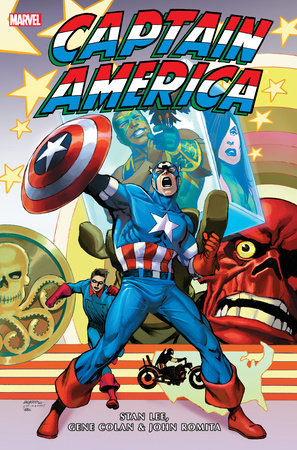
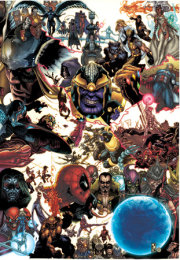
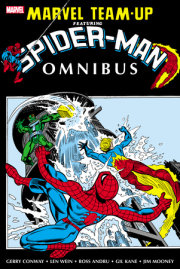

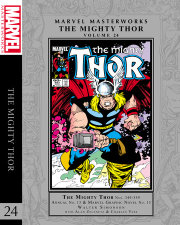
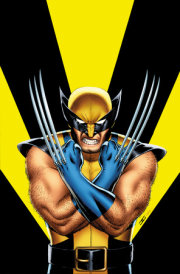

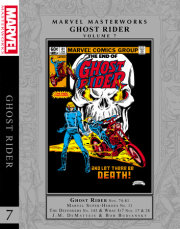
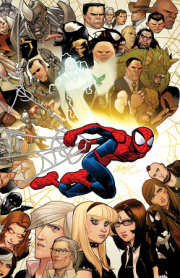
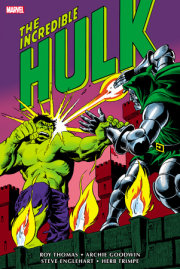
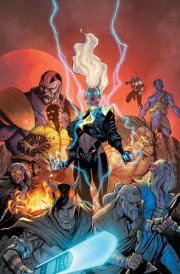
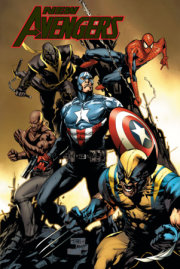
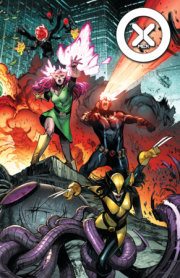
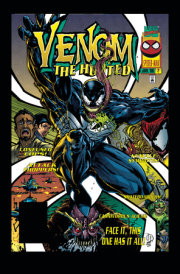
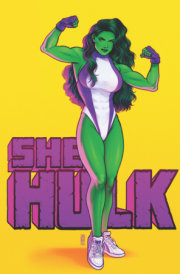

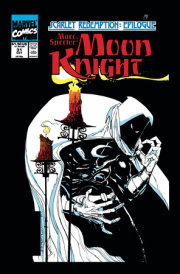
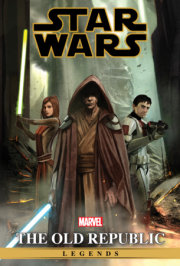
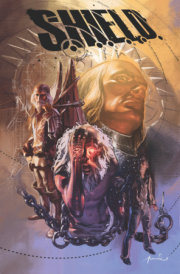

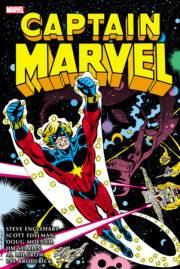
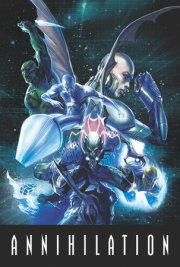
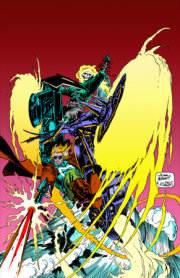
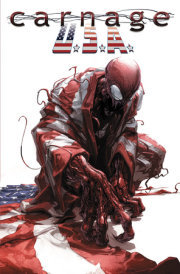
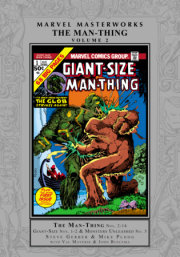
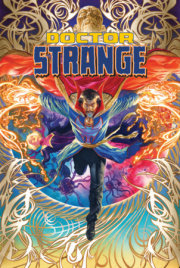
![TOMB OF DRACULA OMNIBUS VOL. 1 NEAL ADAMS COVER [NEW PRINTING 2]](https://images.penguinrandomhouse.com/cover/9781302965037?width=180)
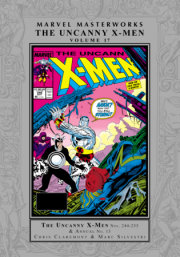
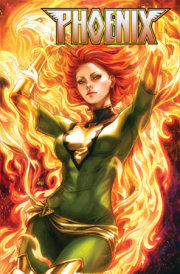
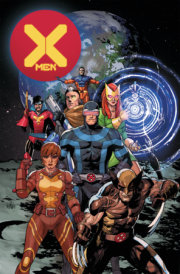
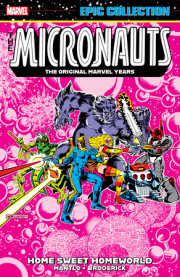
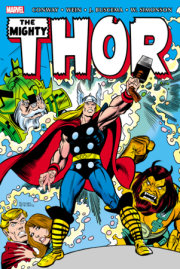
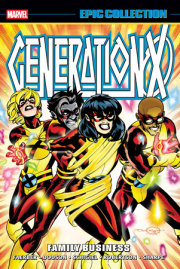
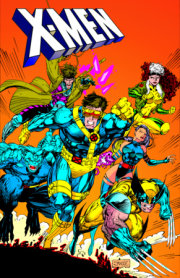
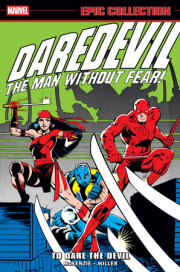
![IRON MAN: DEMON IN A BOTTLE [NEW PRINTING 2]](https://images.penguinrandomhouse.com/cover/9781302961817?width=180)
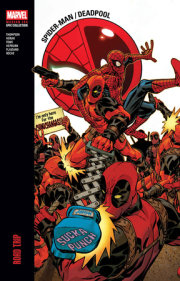
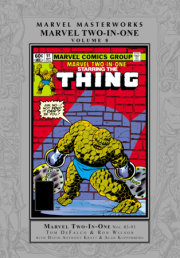
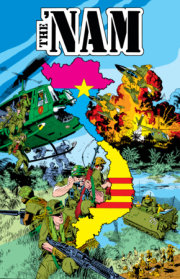
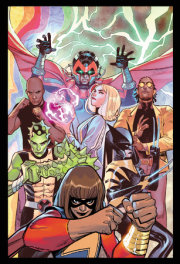
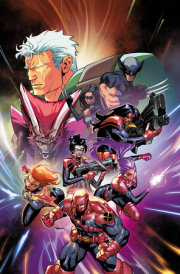
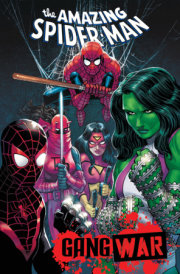
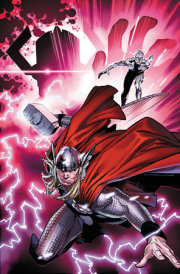
![ANNIHILATION: CONQUEST OMNIBUS ALEKSI BRICLOT COVER [NEW PRINTING 2]](https://images.penguinrandomhouse.com/cover/9781302966324?width=180)
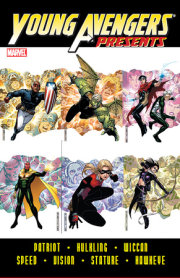
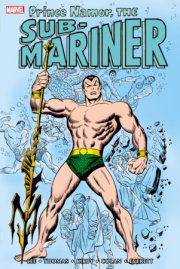
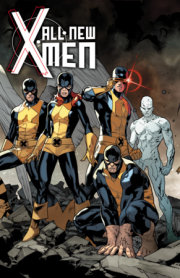
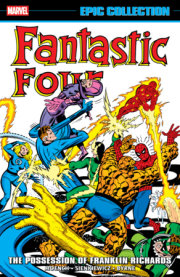
![ORIGINAL SIN [NEW PRINTING]](https://images.penguinrandomhouse.com/cover/9781302966249?width=180)
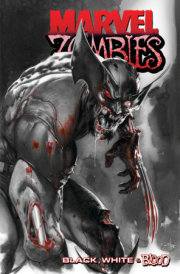
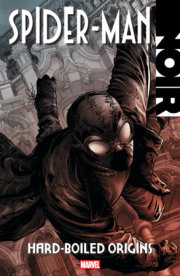
![X-FACTOR BY PETER DAVID OMNIBUS VOL. 1 LARRY STROMAN COVER [NEW PRINTING]](https://images.penguinrandomhouse.com/cover/9781302963705?width=180)
![AVENGERS WEST COAST EPIC COLLECTION: VISION QUEST [NEW PRINTING]](https://images.penguinrandomhouse.com/cover/9781302963910?width=180)
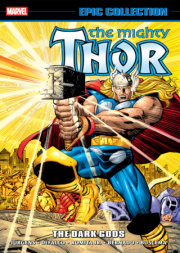
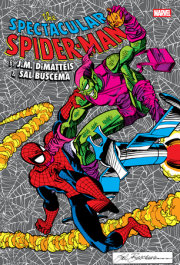
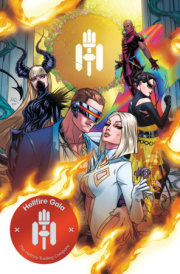
![WOLVERINE GOES TO HELL OMNIBUS JAE LEE COVER [NEW PRINTING]](https://images.penguinrandomhouse.com/cover/9781302961381?width=180)
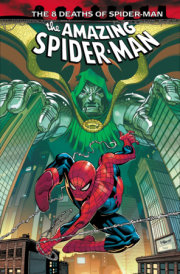
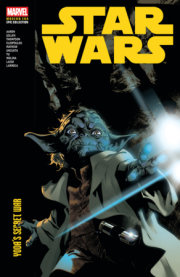
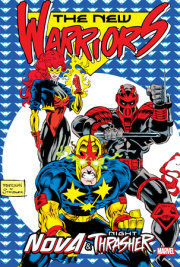
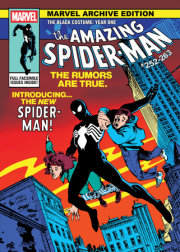


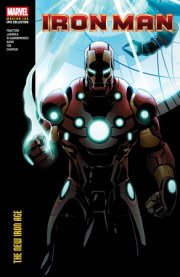
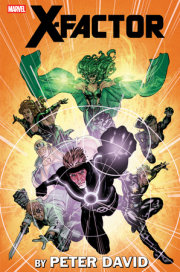
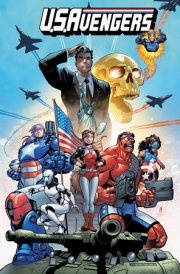
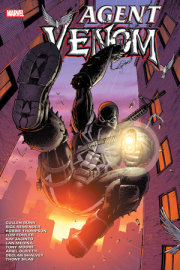

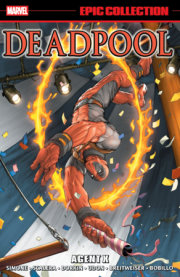
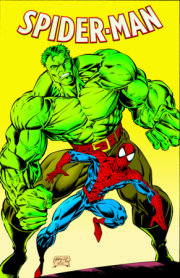
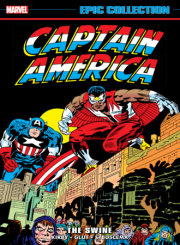
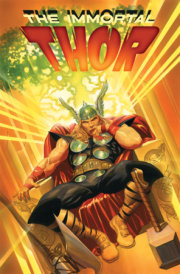
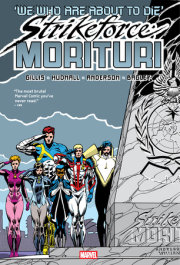
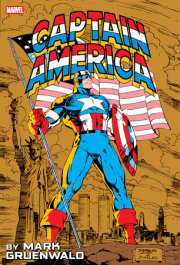
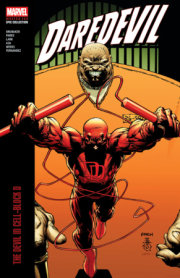
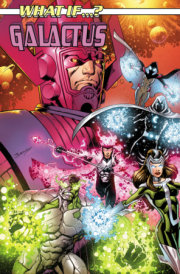
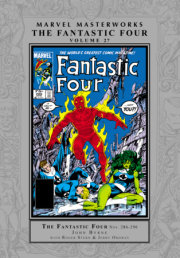
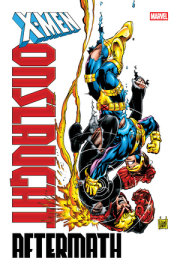
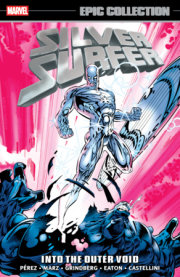
![MARVEL MASTERWORKS: THE SILVER SURFER VOL. 1 [REMASTERWORKS]](https://images.penguinrandomhouse.com/cover/9781302956042?width=180)
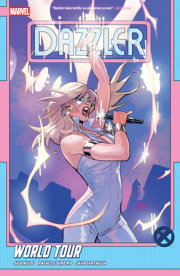
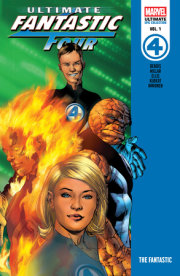
![X-MEN: AGE OF APOCALYPSE VOL. 2 - REIGN [NEW PRINTING]](https://images.penguinrandomhouse.com/cover/9781302963958?width=180)
